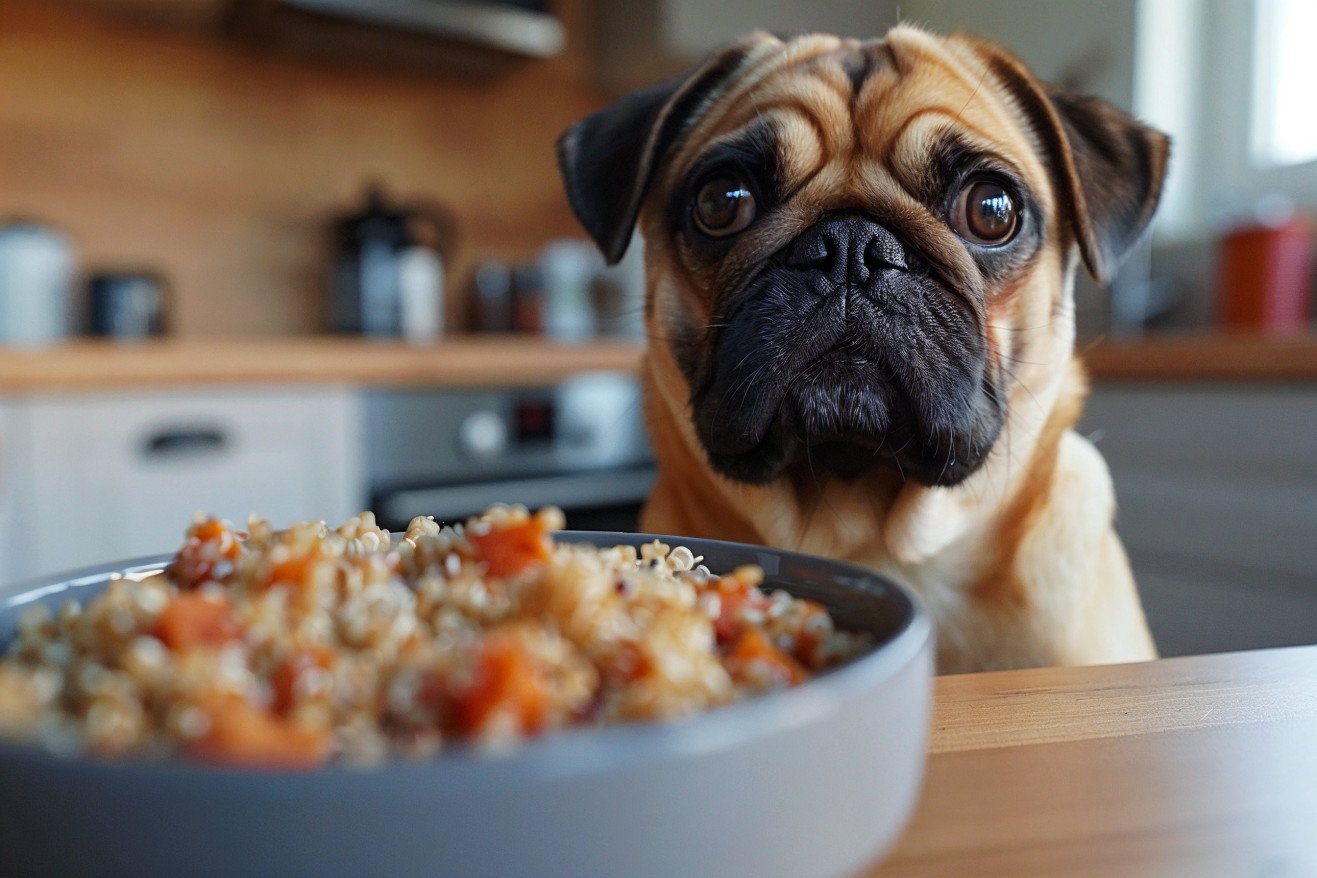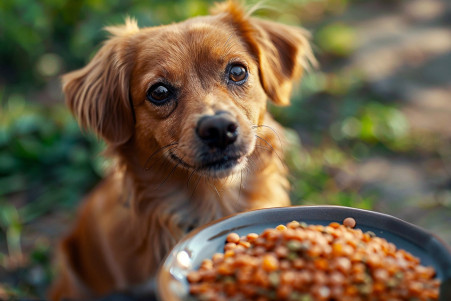Can Dogs Eat Quinoa? What You Need to Know
17 April 2024 • Updated 15 April 2024

If you're a dog owner who wants to add the superfood quinoa to your dog's diet, it's important to know the potential benefits and drawbacks. While quinoa is not poisonous to dogs and can offer fiber, minerals, and plant-based proteins, it's also high in fat and should be given to dogs in moderation to avoid pancreatitis and other gastrointestinal issues.
To help you better understand, we'll take a look at studies that have been done on the effects of quinoa in dogs. By reviewing the insights of nutrition professionals and the results of feeding studies, you can learn whether or not quinoa is a good option for your dog or if there are other grains you should be adding to their diet instead.
Can dogs eat quinoa?
Quinoa's Nutritional Value and Health Benefits for Dogs
Quinoa is a nutritional powerhouse that offers a number of health benefits for dogs. As a complete protein source, it contains all of the essential amino acids that dogs need to support muscle growth and repair. Quinoa is also high in fiber, which can help promote healthy digestion, and complex carbohydrates, which can help provide a steady source of energy.
Quinoa's low-fat content makes it a good option for dogs that are overweight or at risk for pancreatitis, according to veterinary expert Dr. Alex Schechter. In addition, quinoa is a good source of vitamins and minerals, including iron, magnesium, and B vitamins, which can help support metabolism, brain health, and blood sugar control in dogs, according to The Pet Gourmet.
Because it's gluten-free, quinoa can be a good option for dogs with food allergies or sensitivities. Its low-calorie density also makes it a good option for dogs that are on a weight loss diet. In general, adding quinoa to a dog's diet can help ensure they get the nutrients they need and support a number of their health needs, including digestion and energy levels.
How to Make Quinoa Safe for Dogs to Eat
To make quinoa safe for dogs to eat, you need to start by rinsing the grains thoroughly. Quinoa contains saponin, a naturally occurring compound that can cause gastrointestinal distress if it's not removed, according to Ollie Blog. Once the quinoa is rinsed, it can be cooked in water or low-sodium broth until the liquid is absorbed and the quinoa is light and fluffy.
The quinoa should be served warm (not hot) and without any seasonings, salts, or other ingredients that could be toxic to dogs, says the American Kennel Club. It's also best to start by feeding your dog small amounts of quinoa so you can watch for signs of an adverse reaction, such as vomiting or diarrhea.
Once it's been prepared correctly, plain, cooked quinoa can be mixed with your dog's regular food or given to them as an occasional snack. However, Healthy Paws Pet Insurance notes that it's important to make sure your dog doesn't eat too much quinoa, which could cause an upset stomach or lead to weight gain.
Quinoa Allergies and Sensitivities in Dogs
However, as with any food, quinoa can cause allergic reactions or sensitivities in some dogs. VCA Animal Hospitals explains that food allergies are one of the most common allergies in dogs and occur when the immune system reacts to specific proteins or carbohydrates. The most common food allergens in dogs include proteins from beef, dairy, and chicken, as well as soy and wheat.
Symptoms of a quinoa allergy may include digestive upset, skin problems, rashes, and hair loss, according to Bulldogology. Dogs with other food allergies or sensitivities may be more likely to react to quinoa. TryFi notes that when introducing quinoa to a dog, it's important to do so slowly and carefully monitor the dog for any signs of an allergic reaction.
If a dog shows any signs of an allergic reaction after eating quinoa, it should be removed from their diet immediately, and the dog should be taken to a veterinarian. VCA Animal Hospitals explains that the key to managing food allergies in dogs is to identify and avoid the allergen.
How Much Quinoa Can Dogs Eat?
As with any food, it’s important to feed your dog quinoa in moderation. Wild Earth notes that quinoa should be fed as part of a balanced diet and not as a complete meal. The amount of quinoa that is safe for dogs to eat will depend on the dog’s size, age, activity level, and caloric requirements.
In general, Spot and Tango recommends that quinoa should not account for more than 10% of a dog’s daily caloric intake. This is because quinoa’s high fiber content can cause digestive problems if it’s consumed in large amounts. TrustedHousesitters.com adds that quinoa should be treated like other treats, which should not exceed 10% of a dog’s daily caloric intake.
To find out how much quinoa is safe for your dog to eat, talk to your vet. They can help you determine how much quinoa you can feed your dog based on their specific dietary and health needs.
Quinoa in Store-Bought Dog Food and Treats
A number of dog food and treat manufacturers have started to add quinoa to their products as a healthy alternative to traditional grains like wheat and corn. JustFoodForDogs notes that this is a great way for dog owners to ensure their pets are getting the superfood's benefits. These products are formulated to give dogs the advantages of this nutrient-rich ancient grain.
If you're going to buy quinoa-based dog food, make sure you're getting a complete and balanced product made with high-quality ingredients, says the American Kennel Club. Quinoa-based dog treats are another way to give your pet the benefits of quinoa in a controlled way. PetGuide's quinoa dog food recipe also shows how to make homemade dog food with quinoa.
That said, Hill's Pet warns that adding any ingredients, including quinoa, to a dog's balanced commercial diet can be problematic because it can disrupt the nutritional balance of the food and lead to health problems down the line. Always read labels and talk to your vet to make sure any quinoa-based dog food or treat is appropriate for your dog's specific dietary requirements.
Conclusion: Quinoa Can Be a Healthy Addition to Your Dog's Diet
When given in moderation, quinoa can be a healthy and beneficial addition to your dog's diet. Quinoa's high protein, fiber, and nutrient content can provide a number of health benefits for dogs.
However, it's important to prepare quinoa properly and introduce it to your dog's diet gradually to avoid digestive issues and allergic reactions. In addition, working with a veterinarian to determine the right serving size for your dog is important. With these considerations in mind, quinoa can be a helpful part of a healthy and balanced diet for dogs.


